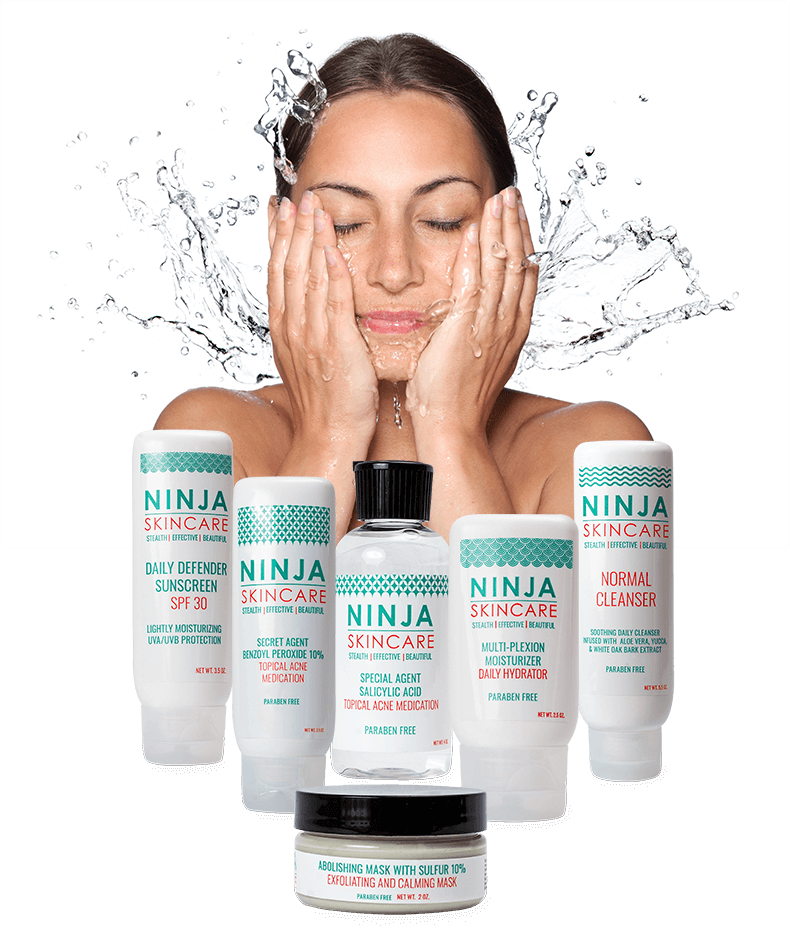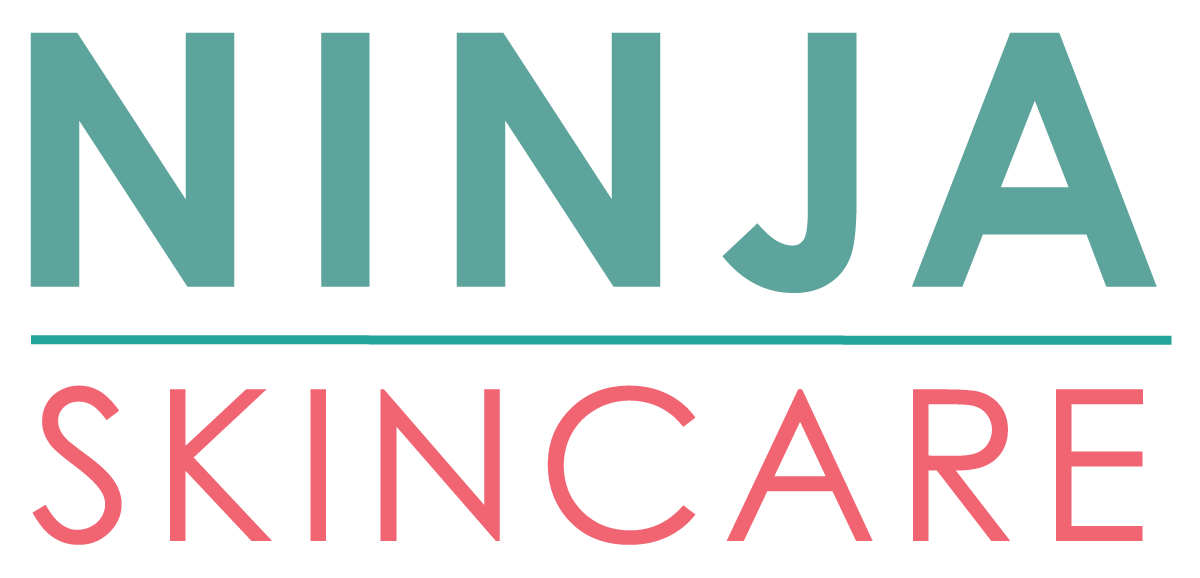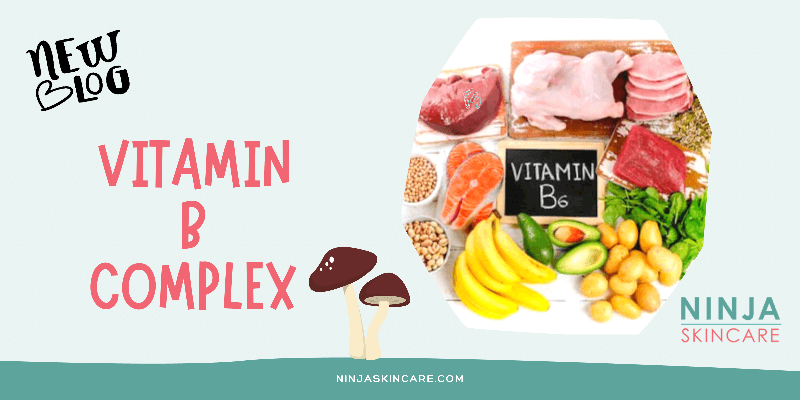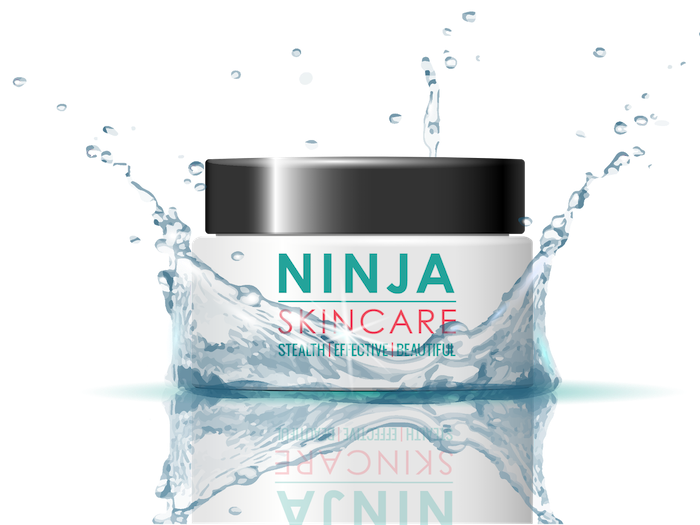Vitamin B Complex: Key Supplement for Healthy Skin
November 5, 2021
Vitamin B Complex – What it is and why it is important
In our last blog post, we explored the benefits that zinc provides to our skin. We’ve also discussed the merits of using topical Vitamin C as well as taking it as a supplement. But how many of you know about Vitamin B and the positive effects it has on our skin and body?
To start, Vitamin B is referred to as Vitamin B Complex because it’s made up of 8 different classes. Each Vitamin B class is water soluble, which is an important fact to know and understand. This means B vitamins are not stored in the body, so it is extremely important to consume vitamin B rich foods on a daily basis. We will get more into which foods contain Vitamin B further down.
The different classes of B vitamins are:
• Vitamin B1 (Thiamin)
• Vitamin B2 (Riboflavin)
• Vitamin B3 (Niacin)
• Vitamin B5 (Pantothenic Acid)
• Vitamin B6 (Pyridoxine)
• Vitamin B7 (Biotin)
• Vitamin B9 (Folate/Folic Acid)
• Vitamin B12 (Cobalamin)
Vitamin B is pretty outstanding, especially when it comes to maintaining healthy skin, hair and nails. For purposes of this blog, we will stick to skin benefits but be aware it helps your entire body as well.
All 8 of the Vitamin B classes are powerful anti oxidants which slows the signs of aging (BIG YAY on that one!) by removing free radicals on our skin that result in fine lines and wrinkles.
B1: The “anti-stress” vitamin. If you are deficient in B1, you may find that your skin becomes more sensitive to different products and your environment. Your blemishes may become more red and irritated and your skin can become drier, resulting in rough patches and even cracking lips.
B2: The cell-turnover vitamin. If you want healthy, glowing skin, this is your vitamin! For those of us with acne prone skin, B2 is key because it maintains mucus secretion of the skin to prevent acne breakouts and dry skin.
B3: The moisture vitamin. If you want awesome looking skin and are getting confused with all these B vitamins, maybe you want to focus on this one. It has been proven to help the skin retain moisture while keeping irritants out. It also helps rosacea, acne, eczema, dermatitis, hyperpigmentation, sun-damaged, aging and dry skin. So if you suffer from any of those ailments, make sure your diet contains plenty of Vitamin B3.
B5: The “dry skin’s best friend” vitamin. If you have dry or dull skin – keep reading. B5 is a humectant which attracts and retains water, improving the skin’s elasticity for fresher looking and feeling skin.
B6: The “red cell” vitamin. Your body requires B6 to produce red blood cells. It’s also needed to produce all our body cells as well as aides in protein metabolism. Without this important vitamin, your skin will not be able to repair itself as efficiently. B6 has also been shown to help regulate hormonal irregularities, thereby helping control acne flare ups especially during menstrual hormone fluctuations.
B7: Biotin. To us, this is actually more well-known for its effect on hair strength and growth than for its skin benefits – but there are skin benefits as well! B7 is responsible for the healthy growth and repair of cells, which in turn helps to even out the skin tone and revitalize your complexion. In addition to being great for your hair, it will also help stave off rashes, acne breakouts, dermatitis, psoriasis, and eczema.
B9: The Cell Production and Tissue Growth vitamin. We feel like this is one of the more well known Vitamin B classes – also known as Folic Acid. With the right amount of Folic Acid in your system, the increased cell production and tissue growth will ensure healthy looking skin. In addition to this awesome effect, it also is know to help detox your body, which is fantastic for those with acne-prone skin. Fewer toxins and less bacteria in the skin means fewer acne breakouts.
B12: The Pigmentation Vitamin. B12 is really great for acne prone people because it helps control the production of pigment in the skin. With the right amount of B12, dark spots from previous acne breakouts can be lessened.
Ok wow- that was a lot of information. But here is some more important stuff: what foods you should be consuming on a daily basis to ensure adequate intake of Vitamin B Complex in your diet.
Vitamin B rich foods include:
- Mushrooms
- Leafy greens
- Almonds
- Salmon
- Liver and organ meat
- Eggs
- Milk
- Beef
- Oysters, clams, mussels
- Legumes
- Chicken and Turkey
- Yogurt
- Trout
Having the right skin care routine is huge… but knowing what to consume to help your largest organ (the skin…d’uh!) thrive is essential for long term health and radiance. Please reach out to us at any time if you have questions about this topic or anything else!



 Get a ZERO obligation consultation with an acne-fighting Ninja!
Get a ZERO obligation consultation with an acne-fighting Ninja!
